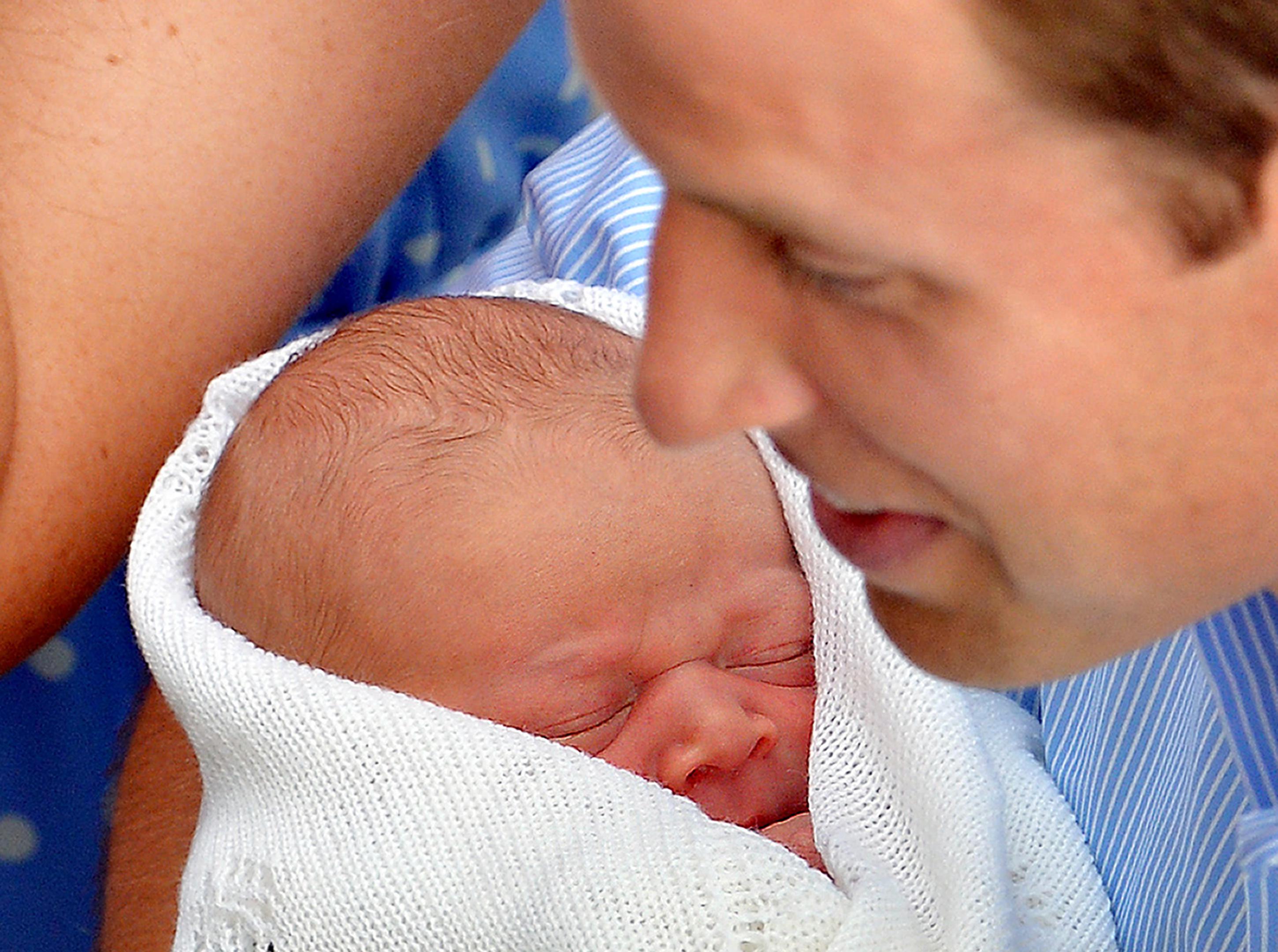The prince is here, and he is George Alexander Louis. Buckingham Palace’s announcement brought months of global baby naming frenzy to a close. For many expectant parents I’ve talked to, this means the blessed end to an era of fear: “Please don’t let them choose my favorite name, because that would ruin it!” Yes, sharing a name with the future King of England is now seen by many as a fashion disaster.
For all the talk about royal traditions and familial homages—would Diana be too pointed? Victoria too much pressure?—fashion was never far below the surface in royal baby name talk. Names are a high-pressure style domain today, where trends change fast. The heir to the throne is widely presumed to be a trendsetter who will trigger a wave of baby Georges, not just in Britain but in the U.S. as well.
That’s a natural presumption. New monarchs and leaders have traditionally been greeted with a bevy of namesakes, as have celebrity babies. The name Esther, for instance, soared after Esther Cleveland (daughter of Grover) was born in the White House in 1893. Sharing a name with the president’s daughter was a good thing.
Prince George, though, enters a naming world that has been utterly transformed from young Esther’s day. Baby name patterns today are dominated by a powerful, style-driven individualism—and cynicism.
For most of U.S. history, you could count on plenty of parents to name their babies after a newly elected president. In the wake of Watergate, that impulse evaporated. Alf Landon inspired more namesakes losing the 1936 election than Bill Clinton did winning in 1992. The Presidents George Bush did nothing to stem the steady decline of George. Parents now wait until the president is safely out of office, or preferably dead, to commit his name to their child.
Outside of politics, too, parents have become less willing to honor the rich and famous with baby names. Hollywood celebrities still trigger name fads, but they’re just blips on the radar compared with the name effects of a Shirley Temple or Judy Garland. Even less-celebrated performers like Ronald Coleman and Linda Darnell inspired bigger trends than any 21st-century star.
It’s hard to imagine that a lack of interest in celebrities is the reason for this shrinking name influence. Rather, baby naming has become more diverse and more competitive. Today’s top names are just a fraction as popular as the favorites of past generations. Parents search for distinctive names that will make their children stand out and are loath to be seen as following a trend (which is its own trend, of course).
This is a tough environment in which to start a princely naming craze. Still, the world’s response to the new heir is notably lacking in cynicism. The public outpouring of excitement and affection has a timeless quality. Is it enough to persuade modern parents to connect their children to a global phenomenon? It’s hard to say, since there’s not much precedent in the modern naming era, as the British throne hasn’t seen a new heir or monarch in 30 years.
In the U.K., at least, George is a fashionable name—currently No. 12 on the name hit parade. In the U.S., though, the name has proven immune to the influence of not just the White House, but also the much greater fashion mojo of actor George Clooney. It’s languishing at No. 166, just above Maddox and below Emmanuel.
Prince George Alexander Louis, then, will be an excellent test of the power of fame in American baby names. It’s positive publicity vs. fashion, in a name world where nobody wants to share.
